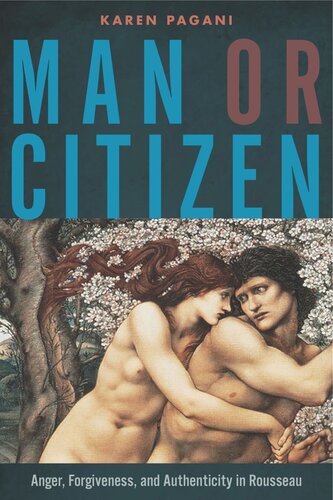

Most ebook files are in PDF format, so you can easily read them using various software such as Foxit Reader or directly on the Google Chrome browser.
Some ebook files are released by publishers in other formats such as .awz, .mobi, .epub, .fb2, etc. You may need to install specific software to read these formats on mobile/PC, such as Calibre.
Please read the tutorial at this link: https://ebookbell.com/faq
We offer FREE conversion to the popular formats you request; however, this may take some time. Therefore, right after payment, please email us, and we will try to provide the service as quickly as possible.
For some exceptional file formats or broken links (if any), please refrain from opening any disputes. Instead, email us first, and we will try to assist within a maximum of 6 hours.
EbookBell Team

4.1
50 reviewsThe French studies scholar Patrick Coleman made the important observation that over the course of the eighteenth century, the social meanings of anger became increasingly democratized. The work of Jean-Jacques Rousseau is an outstanding example of this change. In Man or Citizen, Karen Pagani expands, in original and fascinating ways, the study of anger in Rousseau’s autobiographical, literary, and philosophical works. Pagani is especially interested in how and to what degree anger—and various reconciliatory responses to anger, such as forgiveness—functions as a defining aspect of one’s identity, both as a private individual and as a public citizen. Rousseau himself was, as Pagani puts it, “unabashed” in his own anger and indignation—toward society on one hand (corrupter of our naturally good and authentic selves) and, on the other, toward certain individuals who had somehow wronged him (his famous philosophical disputes with Voltaire and Diderot, for example). In Rousseau’s work, Pagani finds that the extent to which an individual processes, expresses, and eventually resolves or satisfies anger is very much of moral and political concern. She argues that for Rousseau, anger is not only inevitable but also indispensable, and that the incapacity to experience it renders one amoral, while the ability to experience it is a key element of good citizenship.